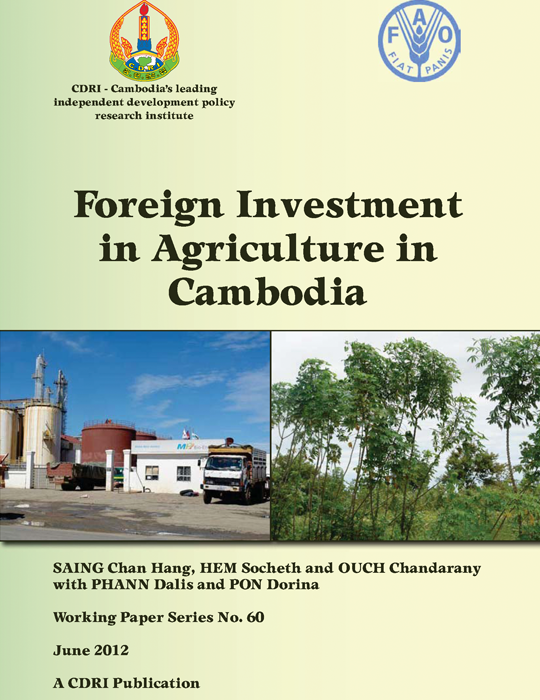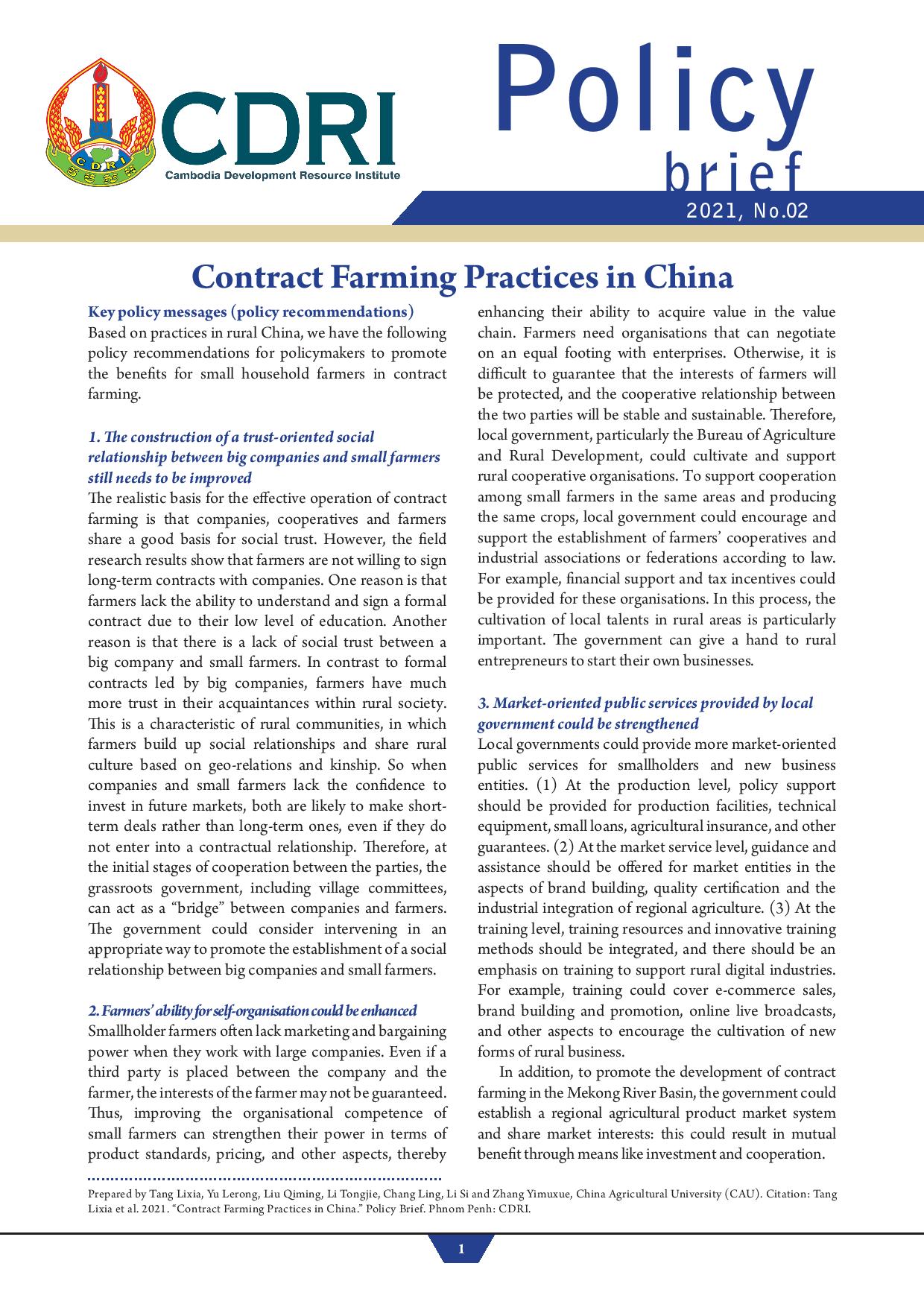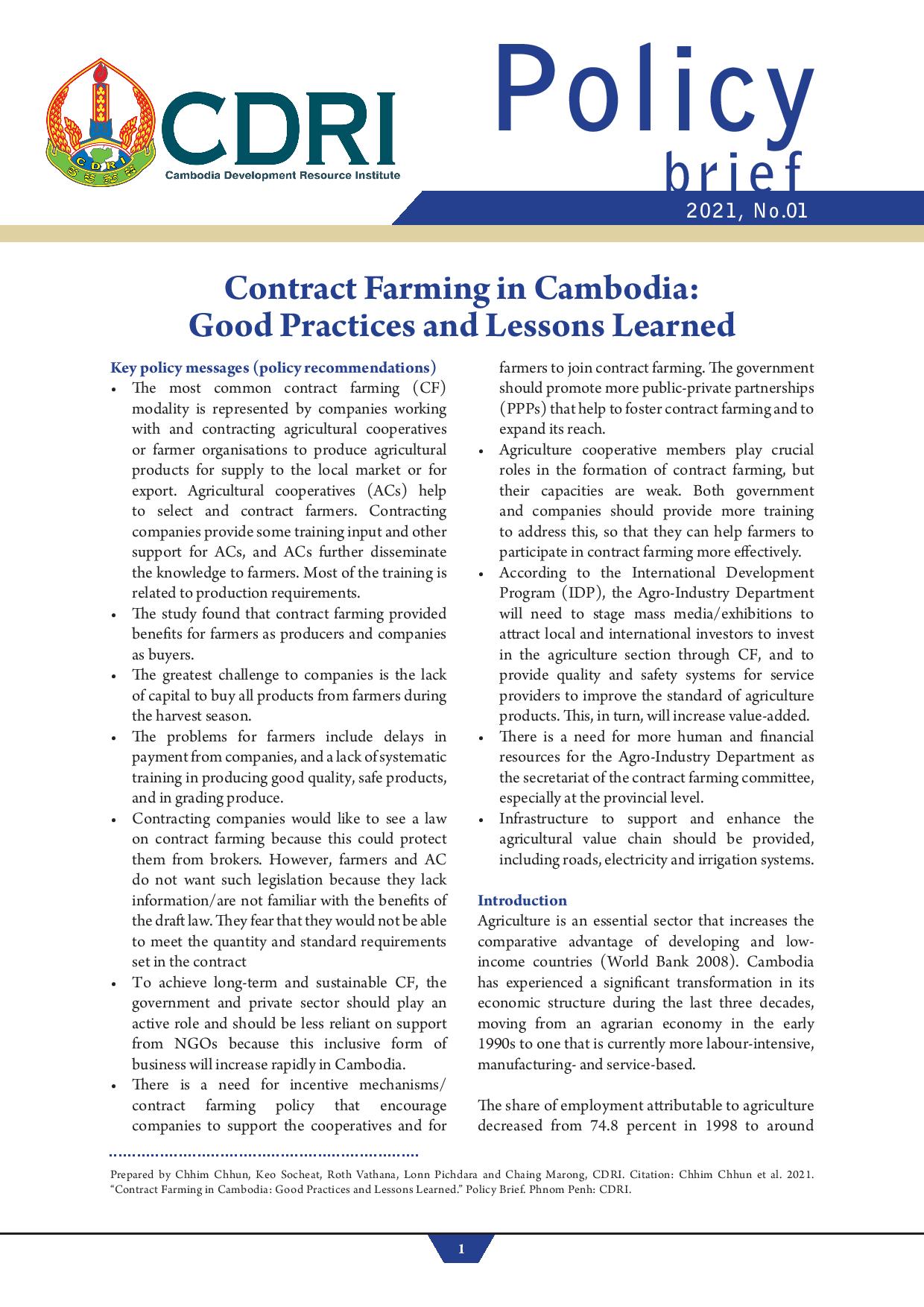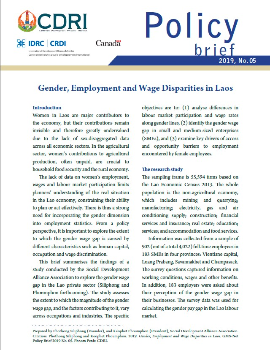
Foreign Investment in Agriculture in Cambodia
Keyword: Foreign direct investment, economic land concessions, agricultural development, land and environmental impacts, food security in Cambodia
Khmer PDF (46)
Abstract/Summary
This study investigates the extent, nature, and impact of foreign direct investment (FDI) in Cambodia’s agriculture sector from 2000 to 2010. Despite agriculture’s vital role in Cambodia’s economy—employing a large rural workforce and contributing to foreign exchange earnings—FDI in the sector remains modest, averaging only 6 percent of total investment. The paper analyses investment trends across sub-sectors including crops, forestry, livestock, fisheries, and food processing, with a focus on Economic Land Concessions (ELCs). It highlights the growing interest from countries such as China, Thailand, Vietnam, and Korea, particularly in agro-industrial crops like rubber, cassava, sugarcane, and maize. Through case studies and fieldwork, the paper assesses both positive and negative impacts of FDI projects, including job creation, infrastructure development, land conflicts, environmental degradation, and threats to food security. It finds that while some projects benefit local communities, others exacerbate land disputes and reduce access to traditional income sources. The study concludes with policy recommendations for government, private investors, communities, and civil society to ensure that agricultural FDI supports inclusive and sustainable development.
DOI: https://doi.org/10.64202/wp.60.201201



